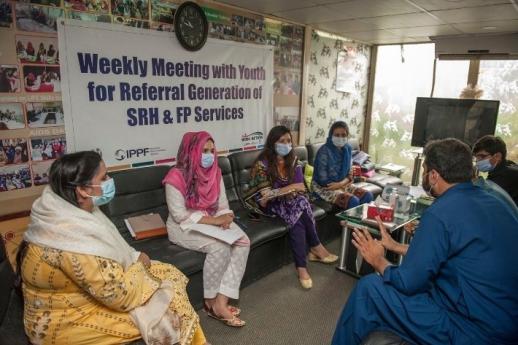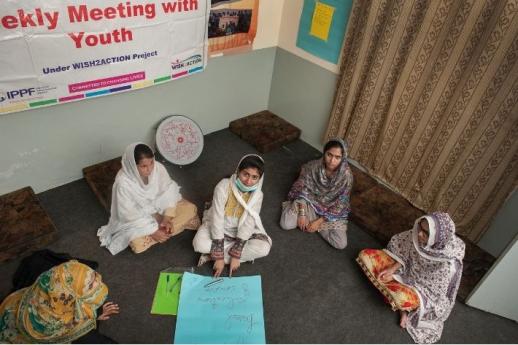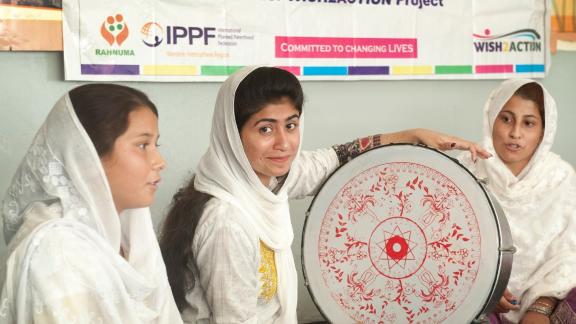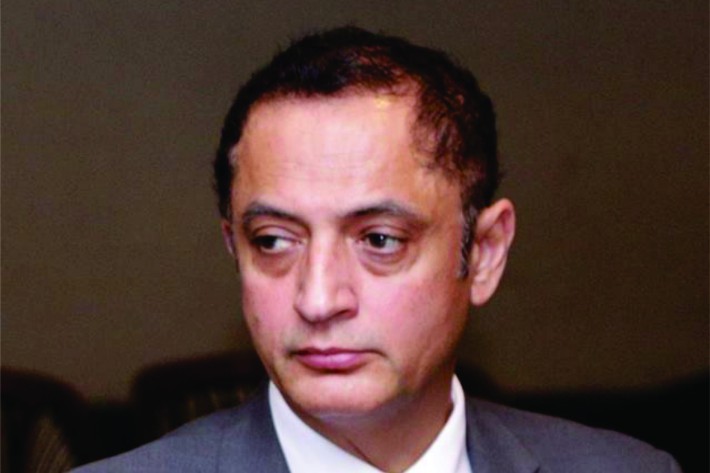An estimated 64% of Pakistan’s population is under the age of 30, and the country now has more young people than it has in its history. In light of this, it is important that policies are in place that can effectively respond to the needs of Pakistani youth.
While government policies are increasingly considering youth but in areas such as sexual and reproductive health and rights (SRHR), policies remain virtually non-existent. The sexual reproductive health of young people continues to be a taboo due to existing and widely entrenched cultural, social, and religious belief that young people – particularly those who are unmarried – have no need for SRHR information and services.
Multi-approach techniques for youth
Young people not only need access to comprehensive SRHR information but also services that cater to their needs. Through the WISH program*, IPPF’s Member Association R-FPAP has implemented many different approaches to reach young people with SRHR information and services. Through these approaches the programme was able to reach 8.3% of youth (of the total clients served) between January 2019 and August 2021, increasing from 2.5% in the first quarter of the programme, reaching a high of 10.2% in the second to last quarter (+7.7%). Further, there was a 203% increase in total SRHR services provided to youth under 20 between 2018 (pre-WISH) and 2021.
when
country
Pakistan
region
Arab World
Subject
Young People
Related Member Association
Rahnuma-Family Planning Association of Pakistan

A weekly youth session in action
IPPFSome of these interventions include:
- Establishing Youth Resource centers. Group sensitization sessions take place at the youth resource centres weekly, delivered through Youth Peer Ambassadors and Youth Champions/Volunteers. A total of 1,366 sessions were conducted in the youth resources centres throughout the programme intervention period Jan 2019 - Aug 2021.
- Weekly community awareness sessions have been conducted with men and boys, and community gatekeepers such as community leaders, parents, and teachers, who are highly influential. Over 5,000 sessions were conducted in the community during the programme life. These sessions are expected to have led to increased community acceptance of sexual and reproductive healthcare, and increases in the number of clients accessing static clinics and in the number of calls received on the helpline. The community sessions were particularly effective in reaching out of school youth and youth living in rural and poorer areas. The programme also introduced youth community theatre to supplement the community dialogues.
- Life Skill-Based Education sessions at academic institutions to create awareness on SRHR and link students to Youth Friendly Services. A total of 152 sessions were conducted at academic institutions throughout the programme.
- TV, radio, print, and social media campaigns.
- Digital campaign (mobile phones) through a pilot intervention in collaboration with Viamo which involved the development of audio content for mobile phones which was disseminated over a 4-week period on differing themes related to SRHR.
Information does not translate automatically into an uptake in services, and in order to increase service provision R-FPAP:
- Introduced youth outreach days at the youth resource centres – these were in addition to the regular outreaches that were conducted. Outreaches are an important channel for reaching youth, and in conducting outreaches at the youth resource centre R-FPAP was effectively bringing services much closer to young people, in an environment that was deemed by young people as safe and private.
- Encouraged satisfied clients of R-FPAP services to help with referrals.
- Further promoted its well-established youth helpline during the COVID-19 period when physical access was restricted as well as part of the digital health intervention. Through W2A funding the youth helpline was upgraded and new elements were introduced on the helpline, for example enabling callers to access information at any time of the day, including out of office hours and when the call line is busy. R-FPAP has also piloted telemedicine services.
Much more to be done
While the programme has a lot to celebrate, there is still much that needs to be done to further reach young people with SRHR services. There is a need to better understand which of the above interventions have been the most successful to enable replication and scale up of the most effective strategy.
FPAP’s non-refusal policy enabling access to free services and the establishment of the cluster model approach used in the project which increased coordination between key stakeholders is thought to have also contributed to the results.

A group of young women gather to discuss sexual and reproductive health
IPPFWhile community attitudes are changing and interpersonal communications are an important approach for community behaviour change, change requires time. Evidence suggests that continuation of key messages over a prolonged period is essential for changing and sustaining new social behaviours, which is made difficult through the sporadic nature of programme funding.
There are also further improvements needed on the supply side, for example the training of service providers in youth-friendly services should be introduced more widely, and considerations such as allocating specific budgets for youth SRHR which can only be achieved through changes in policy. It is through these concerted efforts that we may begin to see a strengthened health system in Pakistan that is able to meet the needs of young people – a group currently underserved by existing systems and policies, who the government cannot afford to leave behind.
*The Women’s Integrated Sexual Health (WISH) programme offers quality integrated and inclusive family planning and sexual and reproductive health services to marginalized and hard to reach populations: the poor, youth under 20 and people living with a disability. WISH is a flagship programme to scale up support to integrated sexual and reproductive health and rights (SRHR) services in countries across Africa and Asia by 2021, and is funded by the UK Foreign Commonwealth and Development Office (FCDO).









